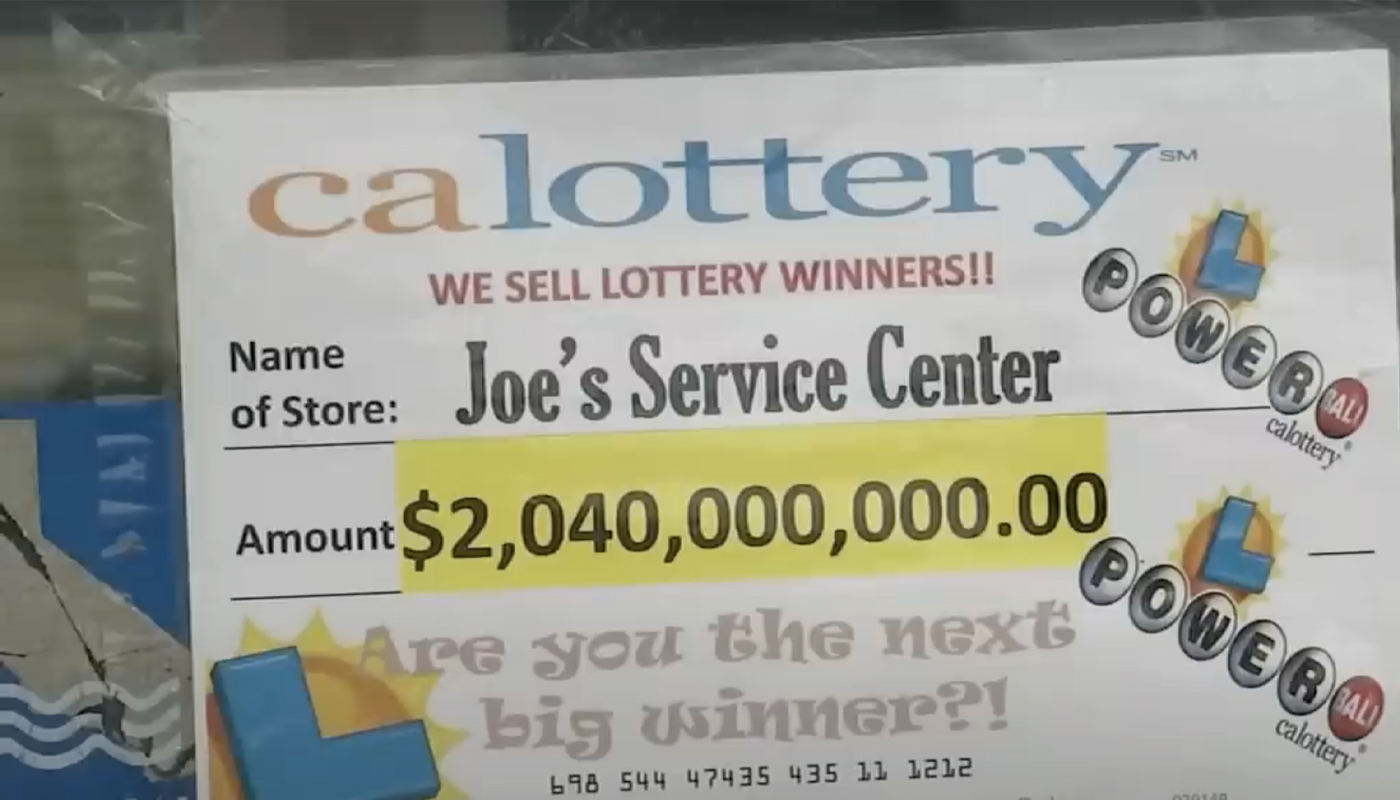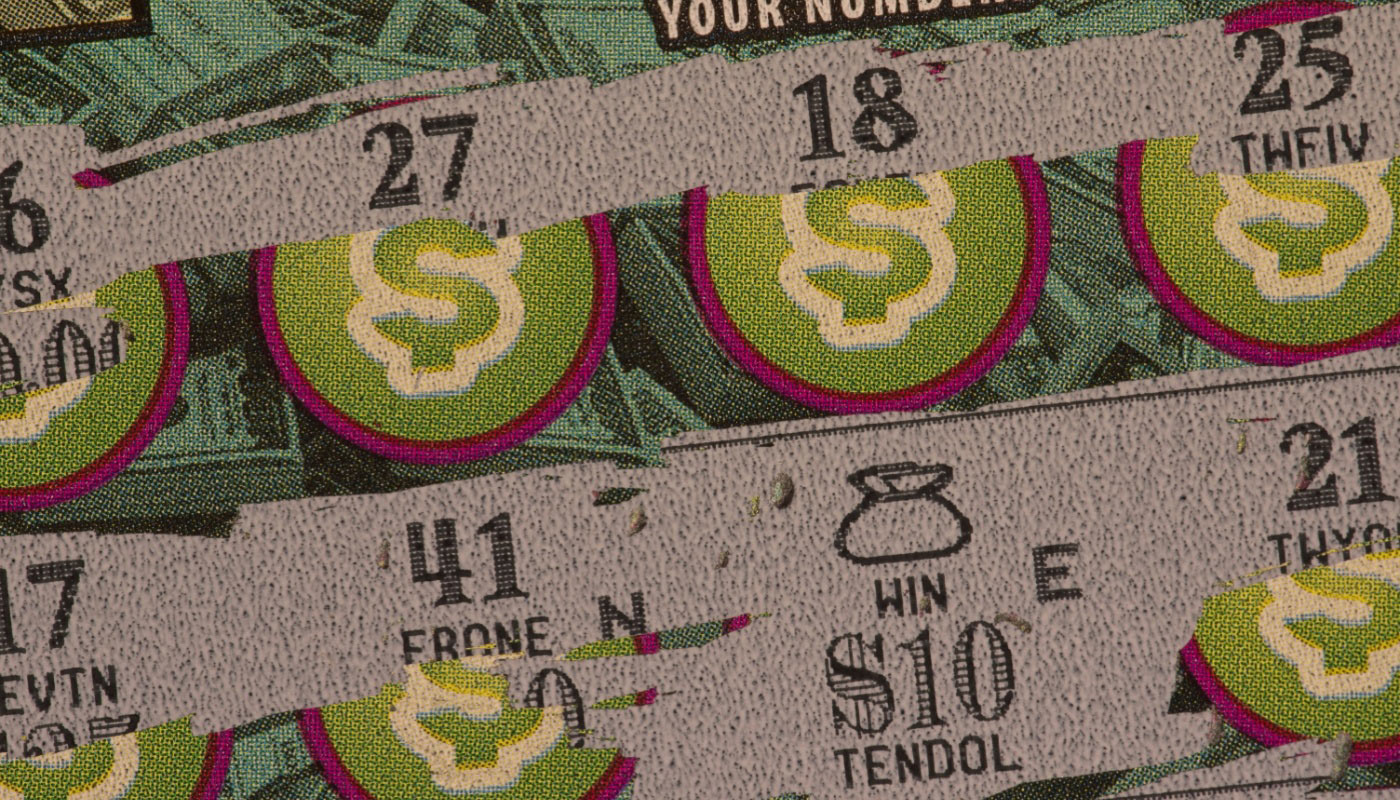
News writer; Opinion columnist
American lotteries pay out over $60 billion in prizes every year. With so much money at stake, it is crucial that lottery officials protect the integrity of their games and ensure that they are fair for every player.
However, with so much money at stake, it can be tempting for corrupt officials to collect some of those millions for themselves. From embezzlement to ticket theft to bribery, there are no limits to the devious actions some people will take to help themselves to money that isn't theirs.
These are true stories of corrupt lottery officials who were caught taking money from the games they were supposed to protect.
Grab and go
Every employee of a state lottery organization has to obey one very strict rule: they can never play the lottery themselves. Playing in the same game you've been hired to regulate creates a clear conflict of interest and jeopardizes the players' trust that the games are fairly run.
That's why alarm bells went off in the Massachusetts Lottery Headquarters when David Cannistraro, the organization's sales supervisor, was spotted cashing in instant-win tickets at a Cape Cod liquor store in 2019.
While playing the lottery was already a violation of state law, the subsequent investigation revealed that Cannistraro was doing far more than just sneaking in a quick game in his free time.
When a lottery ticket fails to sell, the store can't just throw it in the dumpster. State regulations require retailers to return all unsold tickets to the lottery in locked bags, which are then stored in a secure room. Lottery employees are responsible for verifying that the store returned the correct number of tickets, which are then destroyed.
Investigators believe that Cannistraro found a way to intercept the returned tickets before they could be destroyed, and he evaded detection because he only cashed in the tickets that were worth $600 or less. Winning tickets worth more than $600 must be claimed at state lottery offices, but retailers can directly pay out lower-value tickets.
Lottery officials determined that he stole between $10,000 and $15,000 worth of tickets; however, they still don't know how much money he collected from the winners.
Following the investigation, Cannistraro was immediately fired from his position, and he may still face criminal charges.
In a statement, lottery executive director Michael Sweeney said:
We are taking this matter very seriously as the integrity of our operations is of the utmost importance. The lottery is not only performing our own internal investigation, but has also referred this matter to the MA State Police.
Finders keepers
Authorities caught Cannistraro because he cashed in the stolen tickets himself. An Indiana lottery official attempted to avoid this problem by having his friends do his dirty work for him.
William C. Foreman, a security official with the Indiana Lottery, devised a plan to steal a jackpot. His caper began in May 2004, when an investigator in the security department inadvertently obtained a list showing which stores had received grand-prize winning lottery tickets for the instant-win game $2,000,000 Bonus Spectacular.
Foreman saw the list and noted that one of the tickets was located at Otter's Grocery in Cross Plains, Indiana. He knew that he couldn't buy the ticket himself, so he informed his two friends, Chad Adkins and Daniel Foltz, of the ticket's location. Adkins and Foltz went to the store and spent $700 to buy out the store's entire inventory of $2,000,000 Bonus Spectacular games. Just as Foreman promised, they uncovered a ticket worth one million dollars.
So far, so good, but the plan fell apart when Foltz and Adkins attempted to cash in their ticket. When the two men appeared in the Indiana Lottery headquarters with the ticket, Pete Byrne, the lottery's chief of security, immediately recognized Adkins as a close friend of Foreman's. Furthermore, he knew that the game they had won was on the leaked list of stores with jackpot-winning tickets.
The two men were allowed to redeem their ticket, and they even collected a first payment of $50,000. However, Byrne also launched an investigation into how they had found the ticket. He challenged Foreman to take a lie detector test regarding his friend's big win, but Foreman refused and resigned from the lottery instead.
Next, Byrne turned his sights on Foltz and Adkins, and they eventually agreed to cut a deal. The two men agreed to plead guilty to theft in return for suspended sentences, returning the payment they received and testifying against Foreman.
Despite the witnesses testifying against him, Foreman still refused to admit his role in the plot, and he was charged with theft and disclosing classified lottery information. He went to trial, was found guilty, and a judge sentenced him to eight years of home detention.
Insecure
When Arkansas first launched its own lottery in 2009, Remmele Mazyck was hired from the South Carolina Lottery to work as a deputy security director. And almost as quickly as he started his new job, he started stealing from it.
To generate interest in the new lottery, Arkansas would distribute free promotional instant-win tickets at State Fairs and other public events. Mazyck was able to use his security clearance to enter the lottery's warehouse, take boxes of tickets, and then assign them to stores that were no longer in business.
He would then access the computer systems and list the stolen tickets as "promotional" to explain their absence. He would take piles of tickets home, scratch them, and redeem any winner worth less than $500 because these could be cashed in directly at retailers. Any ticket that wasn't a winner, he would mark as “voided by security” in the computer system.
In just three years, he redeemed 22,710 stolen tickets worth approximately $478,000, far exceeding his annual salary of $76,500.
His perfect plan crumbled in October 2012, when a store clerk questioned why he had tickets from a store that was no longer in business. The clerk reported Mazyck to the lottery officials. Under questioning, he denied any wrongdoing, but he was fired three weeks later after authorities were made aware of his theft.
Eventually, federal prosecutors opened a criminal case against Mazyck, and in July 2013, he pleaded guilty to a single count of felony wire fraud. A judge sentenced him to 37 months in federal prison, followed by two years of supervised release.
Despite his extensive theft, the Arkansas Lottery Commission claimed that their insurance coverage meant that no money was lost:
ALC is fully insured for the amount of the theft through the Arkansas Fidelity Bond Trust Fund, administered by the Arkansas Governmental Bonding Board, and a supplemental insurance policy which ALC purchased following start-up. Assuming our claim is approved under both policies, the ALC will sustain no monetary loss from this theft. Further, if the claim is approved, no Arkansas student will be denied the opportunity to have their college education paid for through the use of Arkansas Scholarship Lottery funding.
No accountability
A significant amount of money flows through lotteries beyond payouts to winners. From ticket sales to marketing costs, payroll, and payments to vendors and marketing firms, it requires a sharp accountant to manage all the cash needed to run a successful lottery.
However, with so much money moving in so many different directions, it wouldn't be hard for that same sharp accountant to dip into the pot and take some for himself… at least for a little while.
While working for the South Carolina Education Lottery (SCEL), accountant Andrew McNeil devised an elaborate scheme to defraud the retailers who bought tickets from the organization. Between April 2010 and August 2012, prosecutors allege that McNeil manually manipulated invoices to overcharge some retailers, while others were not charged at all.
He used the money from the overcharged retailers to balance SCEL's operating budget and personally contacted the retailers who weren't charged, telling them that a glitch in their computer system meant their money hadn't been collected.
He would then direct them to deposit the money they owed into accounts that he controlled. He collected over $226,439.07 before an internal audit revealed significant accounting discrepancies. Investigators quickly turned the case over to the South Carolina Law Enforcement Division (SLED), and it didn't take them long to piece together McNeil's crimes.
The South Carolina Attorney General charged him with embezzling public funds exceeding $10,000, an offense punishable by up to ten years in prison.
Paula Harper Bethea, the executive director of the South Carolina Education Lottery, told reporters that McNeil's theft did not impact the integrity of their games:
All SCEL games, players, and prizes were at all times protected. Although the tightest internal controls were in place, McNeil was intent and found a way to circumvent the procedures. Because of this incident, even more stringent additional monitoring procedures are now in place.
Who watches the watchers?
They say that oftentimes in life, it's not what you know, but who you know that will help you get ahead. And for a while, that seemed to be true for West Virginia resident Carolyn Ann Kitchen.
Kitchen was friends with Joseph Ferrell, a business owner and state delegate, since she was a teenager. As she grew older, he helped her secure a job as an inspector with the West Virginia Lottery Commission, which is responsible for investigating and enforcing rules and regulations surrounding gaming in the state.
However, the job offer was more than an act of altruism on Ferrell's part. After purchasing Southern Amusement Co., he became a major player in the state's video gaming industry. Having a close connection with the commission responsible for regulating his business would prove beneficial.
Ferrell would make illegal cash payments to Kitchen, and in exchange, she repeatedly bent and broke the rules to help Ferrell run his business. Kitchen was on call anytime Ferrell needed sealed parts of his gambling machines repaired, and she ensured that he was always in good standing with the Lottery Commission even when he was not in compliance with state regulations.
After her arrest by federal agents, Kitchen agreed to plead guilty to a single count of making false statements to federal authorities, and a judge sentenced her to 60 months of probation. As a part of her plea, she admitted to accepting bribes from Ferrell.
Ferrell pleaded guilty to racketeering and failing to pay employment taxes, and was sentenced to two years in prison, fined $250,000 and ordered to pay restitution to the state.



















Comments